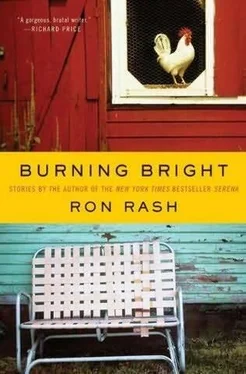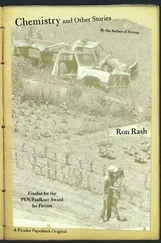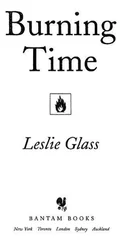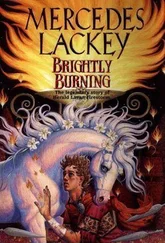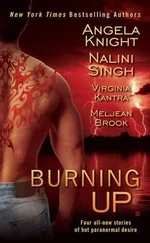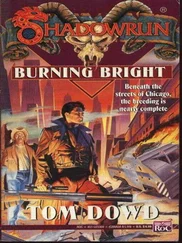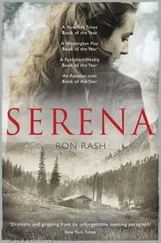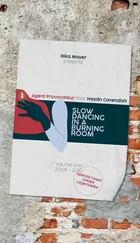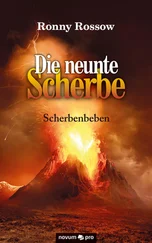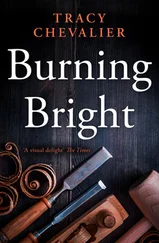“So what they stole now, Doug?” Parson asked.
“Couldn’t it be I just come by to see my old high school buddy?”
Parson placed his hands on the counter.
“It could be, but I got the feeling it isn’t.”
“No,” Hawkins said, smiling wryly. “In these troubled times there’s not much chance to visit with friends and kin.”
“Troubled times,” Parson said. “But good for business, not just my business but yours.”
“I guess that’s a way of looking at it, though for me it’s been too good of late.”
Hawkins took a quick inventory of the bicycles and lawn mowers and chain saws filling the room’s corners. Then he looked the room over again, more purposeful this time, checking behind the counter as well. The sheriff’s brown eyes settled on the floor, where a shotgun lay amid other items yet to be tagged.
“That.410 may be what I’m looking for,” the sheriff said. “Who brought it in?”
“Danny.”
Parson handed the gun to the lawman without saying anything else.
Hawkins held the shotgun and studied the stock a moment.
“My eyes ain’t what they used to be, Parson, but I’d say them initials carved in it are SJ, not DP.”
“That gun Steve Jackson’s?”
“Yes, sir,” the sheriff replied, laying the shotgun on the counter. “Danny took it out of Steve’s truck yesterday. At least that’s what Steve believed.”
“I didn’t notice the initials,” Parson said. “I figured it came off the farm.”
Hawkins picked the shotgun off the counter and held it in one hand, studying it critically. He shifted it slightly, let his thumb rub the stock’s varnished wood.
“I think I can talk Steve out of pressing charges.”
“Don’t do that as a favor to me,” Parson said. “If his own daddy don’t give a damn he’s a thief, why should I?”
“How come you to think Ray doesn’t care?” Hawkins asked.
“Because Danny’s been bringing things to me from the farm for months. Ray knows where they’re going. I called him three months ago and told him myself. He said he couldn’t do anything about it.”
“Doesn’t look to be you’re doing much about it either,” the sheriff said. “I mean, you’re buying from him, right?”
“If I don’t he’ll just drive down to Sylva and sell it there.”
Parson looked out at the snow, the parking lot empty but for his and Hawkins’s vehicles. He wondered if any customers had decided not to pull in because of the sheriff’s car.
“You just as well go ahead and arrest him,” Parson added. “You’ve seen enough of these meth addicts to know he’ll steal something else soon enough.”
“I didn’t know he was on meth,” Hawkins said.
“That’s your job, isn’t it,” Parson replied, “to know such things?”
“There’s too many of them to keep up with. This meth, it ain’t like other drugs. Even cocaine and crack, at least those were expensive and hard to get. But this stuff, it’s too easy.” The sheriff looked out the window. “This snow’s going to make for a long day, so I’d better get to it.”
“So you’re not going to arrest him?”
“No,” Hawkins said. “He’ll have to wait his turn. There’s two dozen in line ahead of him. But you could do me a favor by giving him a call. Tell him this is his one chance, that next time I’ll lock his ass up.” Hawkins pressed his lips together a moment, pensive. “Hell, he might even believe it.”
“I’ll tell him,” Parson said, “but I’ll do it in person.”
Parson went to the window and watched as the sheriff backed out onto the two-lane and drove toward the town’s main drag. Snow stuck to the asphalt now, the jeep blanketed white. He’d watched Danny drive away the day before, the tailgate down and truck bed empty. Parson had known the truck bed would probably be empty when Danny headed out of town, no filled grocery bags or kerosene cans, because the boy lived in a world where food and warmth and clothing were no longer important. The only essentials were the red-and-white packs of Sudafed in the passenger’s seat as the truck disappeared back into the folds of the higher mountains, headed up into Chestnut Cove, what Parson’s father had called the back of beyond, the place where Parson and Ray had grown up.
He placed the pistol in his coat pocket and changed the OPEN sign to CLOSED. Once on the road, Parson saw the snow was dry, powdery, which would make the drive easier. He headed west and did not turn on the radio.
Except for two years in the army, Ray had lived his whole life in Chestnut Cove. He’d used his army pay to buy a farm adjacent to the one he’d grown up on and had soon after married Martha. Parson had joined the army as well but afterward went to Tuckasegee to live. When their parents had gotten too old to mend fences and feed livestock, plant and harvest the tobacco, Ray and Martha did it. Ray had never asked Parson to help, never expected him to, since he was twenty miles away in town. For his part, Parson had not been bitter when the farm was willed to the firstborn. Ray and Martha had earned it. By then Parson owned the pawnshop outright from the bank, had money enough. Ray and Martha sold their house and moved into the farmhouse, raised Danny and his three older sisters there.
Parson slowed as the road began a long curve around Brushy Mountain. The road soon forked and he went left. Another left and he was on a county road, poorly maintained because no wealthy Floridians had second homes on it. No guardrails. He met no other vehicle, because only a few people lived in the cove, had ever lived up here.
Parson parked beside Ray’s truck and got out, stood a few moments before the homestead. He hadn’t been up in nearly a year and supposed he should feel more than the burn of anger directed at his nephew. Some kind of nostalgia. But Parson couldn’t summon it, and if he had, then what for? Working his ass off in August tobacco fields, milking cows on mornings so cold his hands numbed-the very things that had driven him away in the first place. Except for a thin ribbon of smoke unfurling from the chimney, the farm appeared forsaken. No cattle huddled against the snow, no TV or radio playing in the front room or kitchen. Parson had never regretted leaving, and never more so than now as his gaze moved from the rusting tractor and bailer to the sagging fences that held nothing in, settled on the shambling farmhouse itself, then turned toward the land between the barn and house.
Danny’s battered blue-and-white trailer squatted in the pasture. Parson’s feet made a whispery sound as he went to deal with his nephew before talking to his brother and sister-in-law. No footprints marked the snow between house and trailer. Parson knocked on the flimsy aluminum door and when no one answered went in. No lights were on and Parson wasn’t surprised when he flipped a switch and nothing happened. His eyes slowly adjusted to the room’s darkness, and he saw the card table, on it cereal boxes, some open, some not, a half-gallon milk container, its contents frozen solid. The room’s busted-out window helped explain why. Two bowls scabbed with dried cereal lay on the table as well. Two spoons. Parson made his way to the back room, seeing first the kerosene heater beside the bed, the wire wick’s muted orange glow. Two closely lumped mounds rose under a pile of quilts. Like they’re already laid out in their graves , Parson thought as he leaned over and poked the bigger form.
“Get up, boy,” Parson said.
But it was Ray’s face and torso that emerged, swaddled in an array of shirts and sweaters. Martha’s face appeared as well. They seemed like timid animals disturbed in their dens. For a few moments Parson could only stare at them. After decades in the most cynical of professions, he was amazed that anything could still stun him.
Читать дальше
